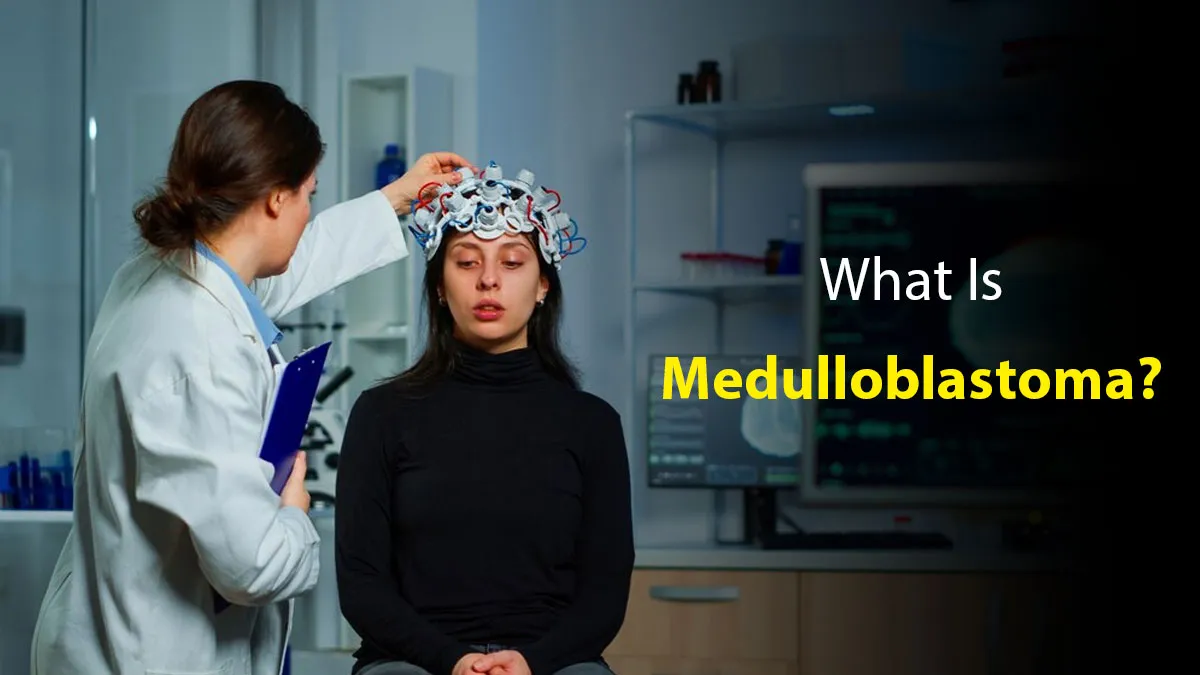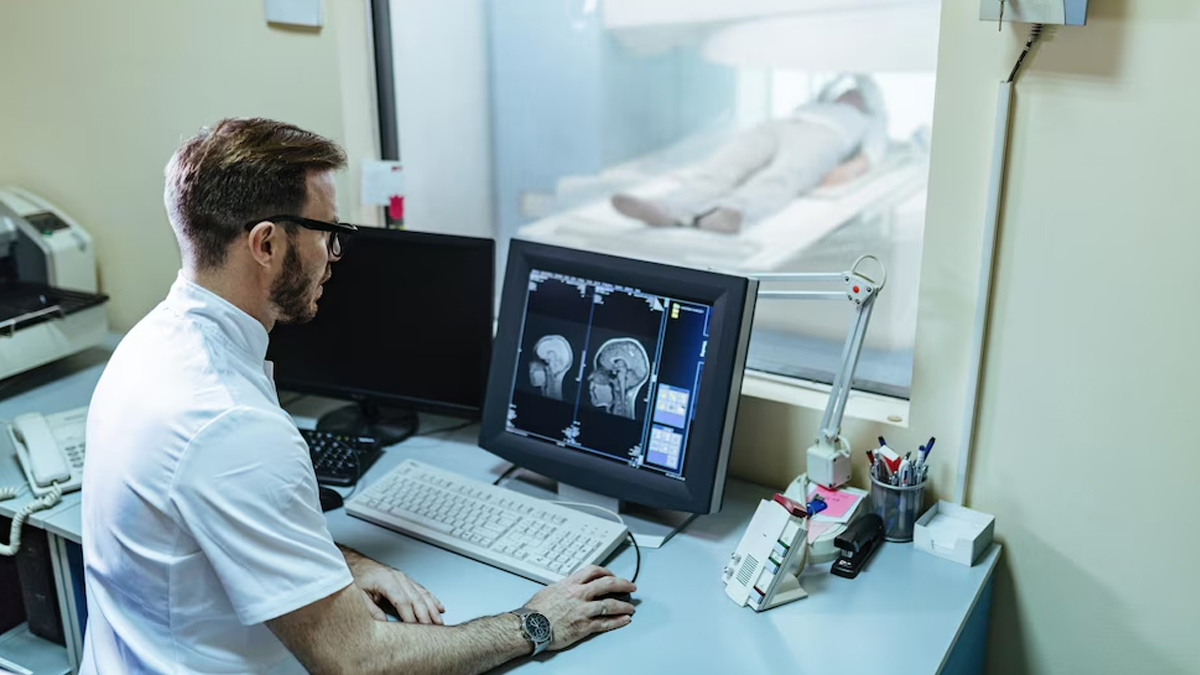
Brain tumours are a complex and often misunderstood medical condition, with various types affecting individuals of all ages. Among these, Medulloblastoma stands out due to its aggressive nature and prevalence in younger populations. It is a rare and aggressive type of brain tumour that primarily affects children but can also occur in adults. It originates in the cerebellum, the part of the brain responsible for balance and coordination. Regarding the same, Dr Agnetia Vinoth, Consultant, Neurosurgery, Apollo Cancer Centre, Chennai explained about the tumour.
Table of Content:-
What is Medulloblastoma?
Medulloblastoma is a fast-growing brain tumour. It forms in the cerebellum, which sits at the base of the brain. Dr Vinoth clarifies, “These tumours arise from embryonal cells, that didn’t mature properly. They can spread through the cerebrospinal fluid, affecting the spine and brain.” While it’s most common in children aged 5–9, about 30% of cases occur in adults.
Symptoms of Medulloblastoma

Symptoms can vary widely, often making diagnosis challenging without proper medical evaluation. The expert suggests that symptoms depend on the tumour’s size and location and some of the common signs include the following:
- Morning headaches (due to pressure buildup in the brain).
- Nausea or vomiting, especially after waking up.
- Balance issues (stumbling, frequent falls).
- Blurred vision or double vision.
- Extreme tiredness or weakness.
- Mood swings or trouble focusing (common in kids).
- Rarely, seizures or back pain if the tumour spreads to the spine.
“Children might not always explain their symptoms clearly,” says Dr. Vinoth. “Parents should watch for clumsiness, irritability, or changes in school performance.”
ALSO READ: Did You Know Night Shift Workers Have Higher Risk of Cancer? Expert Tips On How to Stay Safe
Medulloblastoma Causes and Risk Factors
The exact cause is unknown, but Dr Vinoth links it to:
- Genetic conditions like Li-Fraumeni or Gorlin syndrome.
- Radiation exposure, especially in early childhood.
- Family history of brain tumours (rare).
- Age and gender (boys are slightly more at risk).
“Most cases aren’t inherited,” Dr. Vinoth notes. “But genetic testing can help identify high-risk families.”
A study showed that reduced-dose radiation therapy minimises cognitive decline in children with medulloblastoma, offering a better balance between treatment and quality of life. This study evaluated the cognitive outcomes in children treated with reduced-dose radiation therapy. It found that lower radiation doses reduced the risk of long-term cognitive decline while maintaining effective tumour control. The research advocated for balancing treatment efficacy with quality of life.
Medulloblastoma Treatment Options
“Surgery is the first step, but combining treatments gives the best results,” says Dr. Vinoth. “For kids under 3, we avoid radiation to protect brain development.” Some of the other Medulloblastoma treatment depends on the patient’s age and tumour stage.
- Surgery: Doctors remove as much of the tumour as possible.
- Radiation therapy: Targets remaining cancer cells (often used for older children and adults).
- Chemotherapy: Kills fast-growing cells; common for young kids to avoid radiation side effects.
- Targeted therapies: Newer drugs focus on specific genetic mutations.
Conclusion
Medulloblastoma is a life-threatening tumour but advances in medicine offer hope. Early diagnosis improves survival rates significantly. If you notice symptoms like chronic headaches or balance problems, consult a doctor immediately. Dr Vinoth emphasises, “Awareness saves lives. Regular check-ups and genetic counselling for high-risk families can make a huge difference.” With ongoing research, treatments continue to evolve, offering brighter outcomes for patients.
Also watch this video
Read Next
Does Black Coffee Help Fatty Liver? Expert Explains How 2–4 Cups Without Milk or Sugar May Help
How we keep this article up to date:
We work with experts and keep a close eye on the latest in health and wellness. Whenever there is a new research or helpful information, we update our articles with accurate and useful advice.
Current Version
